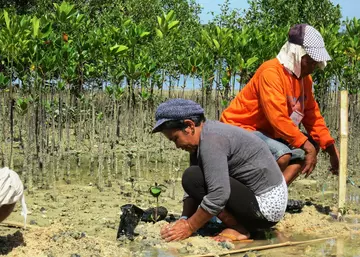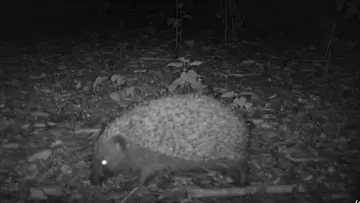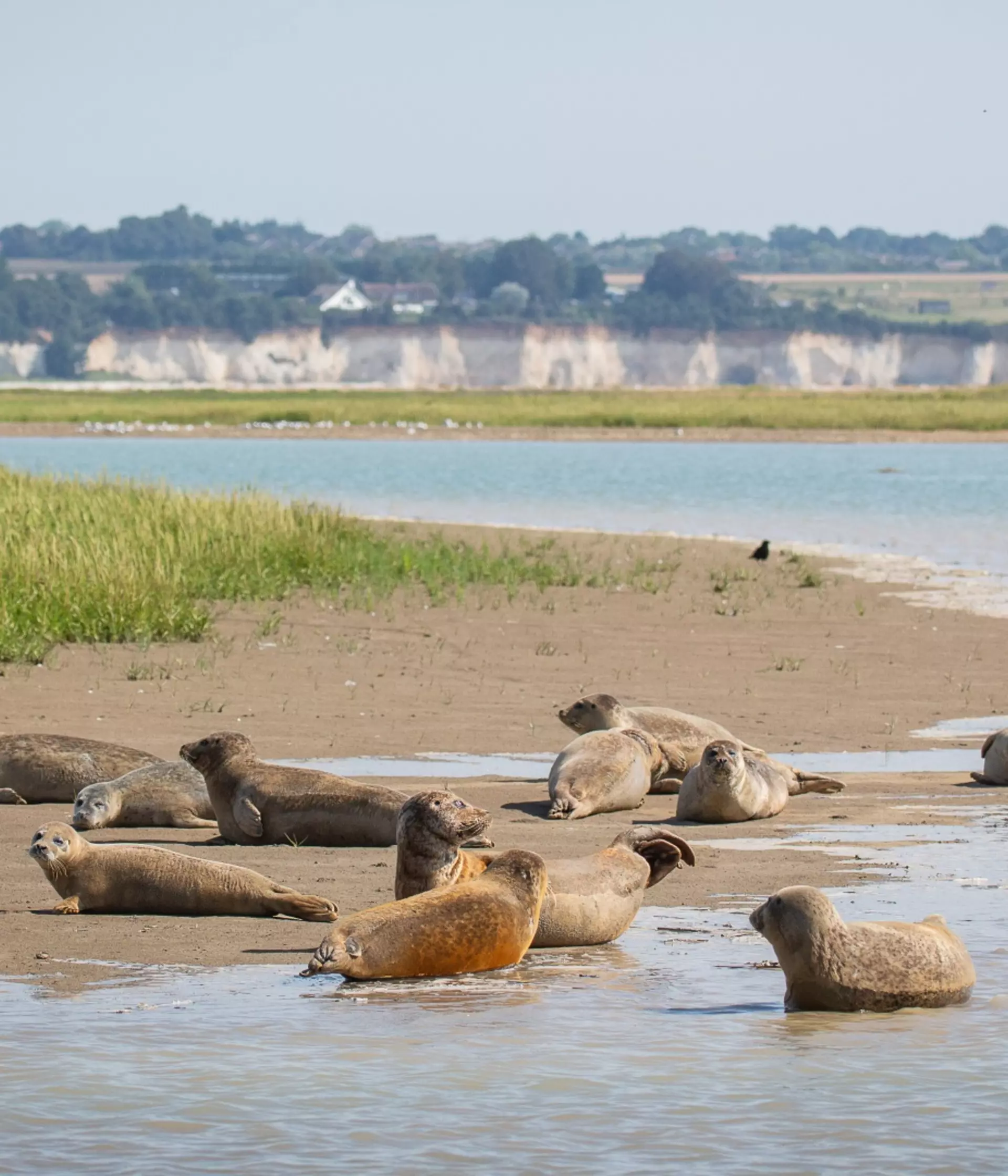
ZSL
Zoological Society of London
COP27: ‘Global cities can be resilient in the face of climate change - if science leads the way’.
ZSL is to play a crucial role in a side event at UNFCC - COP27 in Egypt: Wednesday 16 November.

The UN Framework Convention on Climate Change (UNFCC - COP27) doesn’t have a catchy title. But it will represent an important moment for wildlife and people.
The first of three global conferences on nature taking place this winter, COP27 will see countries come together in Egypt to commit to urgent actions on climate change, in order to keep rising global temperatures to below 1.5C - a target led by science designed to protect life on earth as we know it.
Progress towards this target is sadly not on track. Put simply, much more needs to be done.
ZSL’s science has been abundantly clear on how catastrophically the natural world is being impacted by climate change: In recent years, we’ve revealed how Endangered African wild dog pups’ survival rates have dropped in Kenya, created ground-breaking blueprints to track climate stressors on remote coral reefs and catalogued the reptile species most vulnerability to temperature changes – and much more.
But the devastating loss of biodiversity we’re witnessing globally is also playing a key role in worsening the climate crisis.
In a 2021 landmark ZSL study, ZSL Senior Research Fellow Dr Nathalie Pettorelli – an expert on the impacts of global environmental change on biodiversity – demonstrated how vital it is that the global biodiversity loss and climate crises are tackled together, saying: “The level of interconnectedness between the climate change and biodiversity crises is high and should not be underestimated. This is not just about climate change impacting biodiversity; it is also about the loss of biodiversity deepening the climate crisis.
“Reduced species abundance, local extinctions, as well as the rapid degradation and/or loss of ecosystems such as mangroves, tropical forests, peatlands and seagrass are having a major impact on our planet’s ability to store carbon, while reducing nature and people’s ability to adapt to and/or cope with changing climatic conditions.”
ZSL’s recent Rewilding our Cities report - also authored by Dr Pettorelli and released in September - went one step further: showing how the nature-based solution of urban rewilding can boost wildlife and reduce the impacts of extreme weather, while providing a roadmap for city planners and decision-makers to put into action.
With two out of three people likely to be living in cities or other urban environments by 2050, rewilding not only provides new ways to engage urbanites with nature – improving their wellbeing and mental health – but could improve climate change mitigation and adaptation, reduce disaster risk and pollution levels, and slow down or even help reverse biodiversity loss.

Private gardens, green spaces owned by councils, businesses and religious groups and public spaces such as parks, urban waterways, estuaries and wetlands, as well as less obvious areas such as railways, are key locations where rewilding could make a difference.
Once again, the science is clear: nature-based solutions like this must be taken forward globally if countries are to stay on track in meeting climate change targets.
On Wednesday 16 November, Dr Pettorelli be taking part in a side event as part of the UNFCCC, delving into ZSL’s Rewilding our Cities report and the science behind it. In partnership with the German Development Institute, the Boticário Group Foundation for Nature Protection, Sociedade de Pesquisa em Vida Selvagem e Educação Ambiental (SPVS) and York University in Canada, ‘Bringing nature-based climate action into cities in challenging times’ will focus on how urban nature-based action such as rewilding brings health, climate and nature benefits.
Dr Pettorelli’s talk at this important side event will be available here and on ZSL’s social media channels immediately afterwards.
We have the answers to the problems the natural world is facing: it’s time for governments to put them into action.
COP 27, followed by COP 19 in Panama in November and COP15 in Montreal in December, will together put a much-needed spotlight on the decline in global biodiversity.
But without coordinated nature-based policies in place across the world, animals will continue to go extinct, ecosystems will continue to break down and climate change will continue to change life on earth as we know it.
It is vital that governments commit to using nature-based solutions - rooted in science from ZSL and organisations like it - to tackle the combined threats of climate change, biodiversity loss and public health crises.
It is with science that those in power must start: throughout conference season, ZSL is calling for world leaders to put nature at the heart of all global decision-making to better protect ecosystems, wildlife and the communities who rely on them.
Support ZSL's global science and conservation work and find out more
Climate change and human activity have pushed our precious planet to its limit, causing the devastating loss of so many habitats and species. From lab to field, hands on and behind the scenes, we’re leading the future of conservation, shaping agendas and influencing change to support better life, health and living for people and wildlife.
